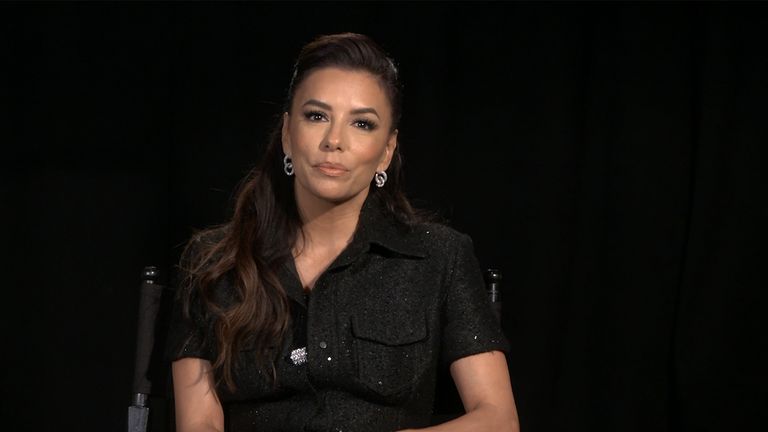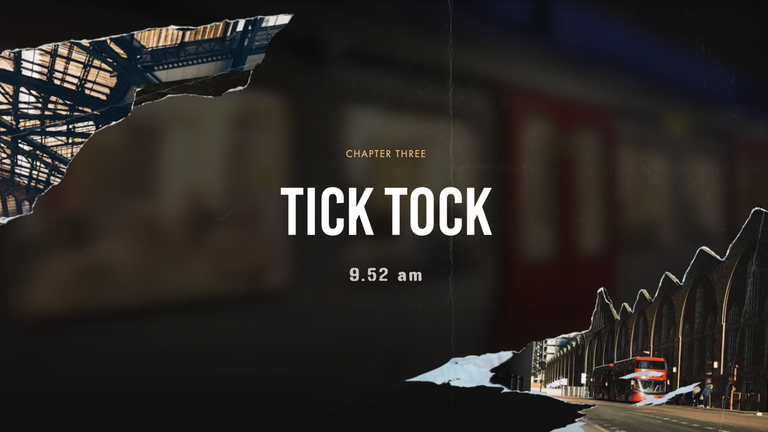The rain tapped lightly against the windowpanes of my London apartment, a steady rhythm that mirrored the musings within my little gray cells.
It was a day like any other, or so I believed, until a peculiar letter arrived. As I delicately unfolded the note, its contents gave rise to a most intriguing puzzle.
‘Mr Hercule Poirot,’ it began in elegant script, ‘I implore you to lend your unparalleled expertise to a matter of utmost secrecy and importance.
‘An enigma of art, an amalgamation of shadows, a crescendo of whispers, await your perceptive insight.’
Asked to open a new novel starring detective Hercule Poirot, one of Agatha Christie’s most famous creations, that’s ChatGPT‘s first attempt at grabbing your attention.
Ciphers Of The Midnight Mind is the artificial intelligence (AI) chatbot’s suggested title – and it could no doubt craft the entire rest of the story in a matter of seconds.
For fans of the more than century-old character, whose popularity has endured beyond Christie’s death in 1976, new stories composed on demand may be a tantalising prospect.
After all, the author’s estate – like those who hold the keys to James Bond and Sherlock Holmes – has happily commissioned other writers to give readers new Poirot and Miss Marple adventures. Who’s to say those same fans couldn’t find enjoyment in a passable imitation by AI?
For many writers, it’s an existential question that has them fearing for their livelihoods.
But for Ajay Chowdhury, an award-winning crime author, it presents an opportunity for them to reach new heights.
“There’s a lot of fear around it for a writer – but I don’t believe it is going to replace us,” he says.
“I started experimenting with AI in writing six or seven months ago, and it was of course slightly scary.
“But it’s like having a fantastic editor on demand.”
Useful editor or existential threat?
Chowdhury’s fascination with AI speaks to his background in tech, one which included co-founding the music discovery app Shazam, later bought by Apple for a reported $400m (then £300m).
But he is now known for his Kamil Rahman crime series, inspired by his Indian roots, which has won him several awards and will see a fifth entry – The Spy – released next year.
AI tools are playing a key role in its development – helping Chowdhury bounce thoughts around, generate potential outcomes for certain scenes, and rephrase sections to help with pacing.
He even used an image generator, Midjourney, to visualise a dramatic chase scene through a cave on the island of Elephanta, a world heritage site off the coast of Mumbai. It helped spark ideas about how it could play out.
“Eight out of 10 times, whatever AI gives you might be thrown away, but the other two times you might think it’s a decent idea that can be expanded on,” he says.
“Using a combination of these tools is giving me a much better draft to submit. I am finding that I get to what would have been a fifth draft by the second draft.”
For Chowdhury, there’s no shame in using AI to help get there, despite what many of his contemporaries fear.
Earlier this month, author Jane Friedman had to contend with AI-generated books purportedly written in her name, falsely listed as such on Amazon. She managed to have them removed, despite them not technically falling foul of copyright law because she had not trademarked her name.
“This promises to be a serious problem for the book publishing world,” she warns.
‘Marvel formula’ most at risk
More than 100,000 writers have endorsed an open letter by America’s Authors Guild, which has demanded AI’s development show “respect for human creators and copyright”.
Generative models like ChatGPT are trained on huge amounts of trademarked material, prompting writers including comedian Sarah Silverman to sue its creator OpenAI for copyright infringement.
This potential to imitate human work is a driving force behind ongoing writers’ strikes in Hollywood.
TV and theatre writer Lisa Holdsworth, who is chair of the Writers’ Guild of Great Britain, told the Sky News Daily podcast that would constitute theft more than creation, and the longer AI models are left to be trained without safeguards in place, “the more of a threat it becomes”.
Click to subscribe to the Sky News Daily wherever you get your podcasts
Chowdhury backs the cause, saying left to its own devices, AI will only serve to indulge mediocrity.
“That beige world of creativity where everything is sequel 32 to something, that worries me,” he admits.
“Look at films like Oppenheimer and Barbie, both extremely well written. Could AI create those? No. But could they write the next Marvel? Possibly, it’s a pretty clear formula.”
A world of mediocrity?
For Chowdhury, the genie is out of the bottle and there’s no going back – writers, like all of us, need to adapt.
Aside from the next main entry in his Kamil Rahman series, AI helped Chowdhury find time to work with Google on interactive novel The Invitation, a crime story set in London’s East End.
The free short story – which includes puzzles to solve, a countdown timer, and sound effects – was made with commuters in mind and only takes around 20 minutes to get through.
It’s a little heavy on the Google product placement, with nods to Gmail and Maps that are clever or eye-rolling depending on your level of cynicism, though as a proof of concept for quick to make, accessible interactive novels, the kinds of which gamers have long been familiar, overall it’s quite effective.
The whole thing came together in six weeks to mark the UK launch of the tech giant’s new Pixel Fold phone, optimised to take advantage of its book-like screen. The production speed helped by Chowdhury generating the artwork using Midjourney.
It does the job, but it’s a move that will no doubt rub some the wrong way given the criticism levelled at Marvel for using AI to generate opening title graphics for its latest TV series.
Read more:
How AI could transform future of crime
Music labels in talks over AI-generated songs
Google insists AI won’t be replacing journalists
But Chowdhury still sees AI as a tool to take him and others “to another level”.
“The utopia to me is people using AI to enhance their creativity,” he says.
“The side that worries me is if large corporations start to think we don’t need creatives any more.
“That will become a world of mediocrity.”
As the rain continued to dance its elegy on the windowpane, Poirot leaned back in his chair, his little gray cells still whirring with satisfaction.
For within the labyrinthine corridors of art and deception, he had once again illuminated the truth, dispelling the shadows that sought refuge in the enigmatic corners of the human soul.
Thanks, ChatGPT, but when it comes to Poirot, I think I’ll stick with Christie.




